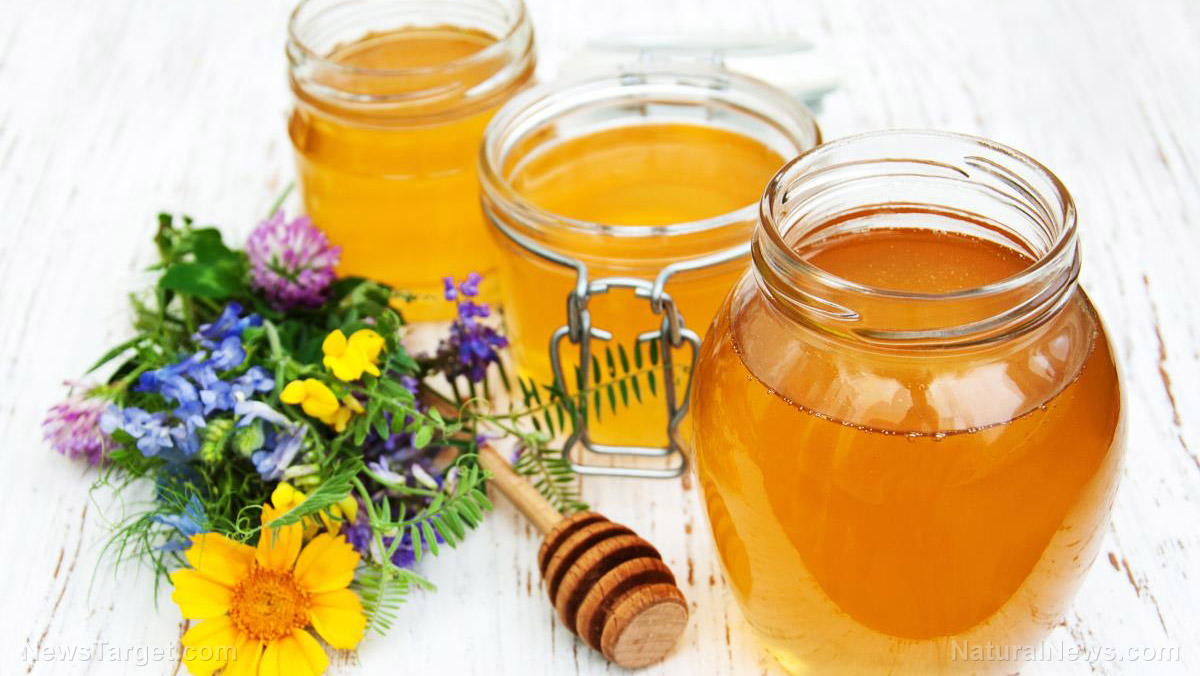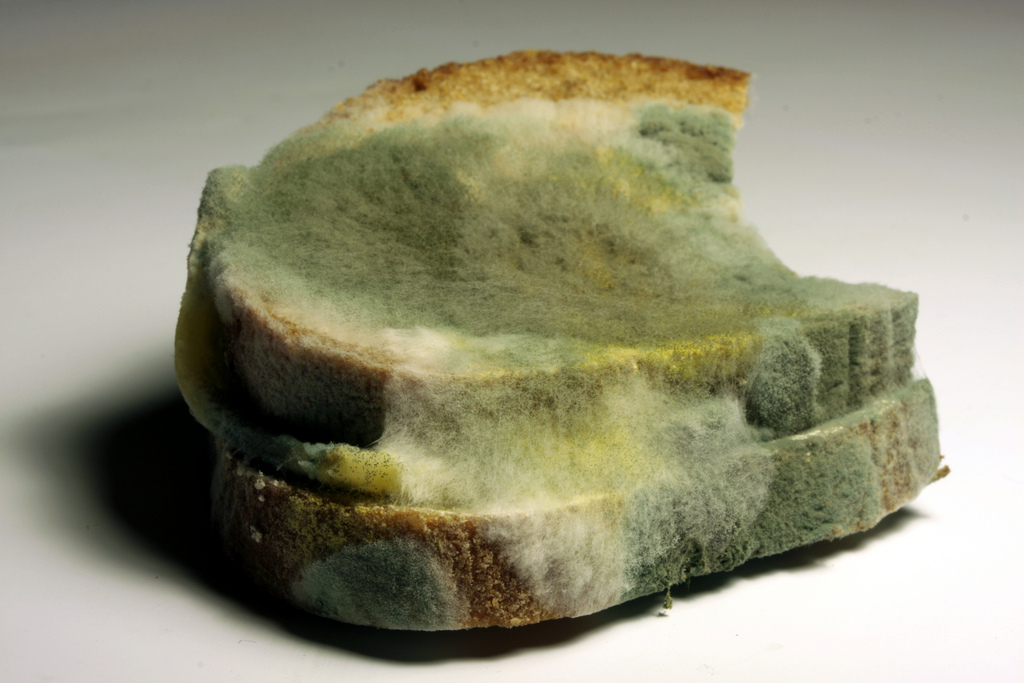
In its pure state, honey will not ferment, but fermentation can occur by accident or deliberately.
Well-stored honey never expires or spoils, even if it's been previously opened. Honey is antibacterial, meaning you don’t have to worry about anything weird or unpleasant growing in your honey. Honey’s acidity and low moisture content keep bacteria from surviving – and without bacteria at work, honey just doesn’t spoil or go bad. It has a pH of about 3.26-4.48, which helps stave off bacteria trying to make a home in your honey.
When stored properly, honey can stay edible for years (even decades) and it will still be as good as the first day you opened it. While honey may darken in color or thicken over time, it will still be safe to eat. (Related: Nothing lasts forever - except these 15 foods.)
How to read honey labels
When choosing honey at the grocery store, you have likely come across labels that use words like raw, pure, organic, filtered, unfiltered and natural. For easier understanding, this article explains the generally accepted definition for each kind of honey and how to store it long term.
Pure honey
A "pure honey" label means that you’re getting 100 percent honey, without any kind of additives such as sugar, corn syrup, artificial or natural flavoring (which is sometimes added to industrial honey to reduce costs).
However, a "pure honey" label alone doesn’t always tell you how the honey is produced. Make sure you’re getting all the benefits you can from honey when it’s produced in the most bee- and environment-friendly way by looking for more information.
Pure honey can be manuka, clover, bush or pohutukawa honey and may either be filtered or heated.
Raw honey
The difference between raw honey and pure honey is that in addition to being pure, a raw honey label means the honey has not been processed by filtering or heating to the point of pasteurization (no higher than 118 degrees Fahrenheit).
The benefit of not heating honey is that the naturally occurring enzymes, amino acids, antioxidants, certain vitamins, minerals and small amounts of nutrients including calcium, magnesium and sodium, are preserved. You get the full benefits of them from eating raw honey – the better choice for people who use honey for health reasons. Raw honey typically tastes better than processed honey.
The process of pasteurizing honey can make it smoother and more aesthetically appealing. However, the pasteurization of honey removes bee pollen whose antioxidant properties, anti-inflammatory effects, antibacterial and antifungal action and pain-relieving properties have been reported in a 2015 review study.
Many beekeepers who produce raw honey are also aware that how they care for the bees and handle the honey has a big impact on the honey we eat, so it's a good bet that raw honey is good for the bees, and the process has been handled with care.
Organic honey
An "organic honey" label means the honey is produced from the pollen of organically grown plants, and without the use of artificial feeds or chemical miticides to treat bees. It is preserved by a slow and deliberate packing operation without the use of heat or filtration.
Buying organic honey ensures that you avoid contact with pesticides that may have been sprayed on or near the plans visited by honeybees.
An organic certification is a good way to ensure the honey is truly organic. It is also important to remember that organic honey is not necessarily raw or minimally processed unless labeled as such. You may want to consider looking for both "raw" and "organic" on the honey label.
It is worth noting that much of the certified organic honey available in the United States is imported in large quantities from Brazil or other foreign countries and undergoes pasteurization and heavy filtration.
Filtered and unfiltered honey
A filtered honey label means the honey has been run through a filter to remove very small particles of honeycomb, beeswax and bee parts, such as their arms, legs, antennae and heads.
Unfiltered honey is not necessarily raw unless labeled so and it will be closer to its state straight from the hive than honey that has been filtered.
Filtering honey is not the same as straining honey, which is commonly done to remove bee parts and other large debris prior to jarring while still retaining the pollen and other beneficial qualities of honey. With filtration, honey is also often heated to become more liquid in order to make the filtering process easier – meaning the honey is no longer raw.
That being said, choosing raw, unfiltered honey ensures that most properties have been preserved.
Natural honey
A natural honey label means the honey being sold may be processed but includes no artificial color, flavor or other synthetic substances.
If you see natural honey on the product label, check the list of ingredients first before purchasing the product as the use of the term is not strictly regulated by the government.
It can be difficult to know for sure by these claims on the label alone because there is little regulation on honey labeling.
Storing honey properly
In reality, the shelf life of honey depends on how it is manufactured – whether it’s raw or pasteurized – and how it is stored.
Storing raw honey
For best results, store your raw honey in an airtight glass container away from heat to prevent it from fermenting. Since raw honey is not pasteurized, it contains live yeast. Yeast will grow when the moisture content of the honey is high enough. This will ferment some of the sugars, make more yeast, alcohol, carbon dioxide and acetic acid – all of which will change the flavor of the raw honey over time. (Related: Food supply 101: how to buy and store honey, the ultimate survival food.)
The honey will still be good to eat but allowing fermentation to continue will change its taste.
- Store your honey at room temperature if it will be consumed within three months.
- Repack your honey in smaller quart mason jars (wide- or regular-mouthed), if your container is too large to be consumed within three months. Only the container of honey in use should be stored at room temperature. Store those that you will not use in the freezer or refrigerator.
- Check your honey. If it has crystallized and has developed white feathery patterns, then it is starting to ferment.
- Place the glass jar of honey in hot water to re-liquefy it. You can allow the honey to get to 160 degrees Fahrenheit during the re-liquefying process to pasteurize, but then it will no longer be raw.
- If you prefer crystallized honey, you should store it in the refrigerator as yeast cannot grow at temperatures below 50 degrees Fahrenheit.
Storing pure honey
- Pure honey may solidify and crystallize with time when it gets older – anywhere from three to six months after you've opened the container.
- In about a year, honey gets darker, which could change its flavor and aroma, though it will not "go bad" in the typical food spoilage sense.
- If your honey starts to solidify in the form of sugar crystals, just put the container in a bowl or pan with warm water to dissolve the crystals.
- Don't store pure honey in the refrigerator as this could cause it to crystallize.
- Avoid the microwave as this can get too hot too quickly. If stovetop warming is out of the question, use a bowl of hot water instead. It may take a little longer to liquefy and you may need to replace the water if it cools too much, but it will work eventually.
To make sure you get exactly what you’re looking for, purchase from small, artisanal or honey producers who are transparent about their production processes. You may try visiting your local farmers' market, checking natural food shops or visiting grocery stores that carry a good variety of honey.
Note that expiration dates on commercially sold honey are more of a marker for stores to rotate in newer, fresher stock on their shelves. So, if you buy a bottle with just a few months left on its "best by" window, rest assured that the honey is totally fine for a long time to come.
Watch the video below to know why your survival food isn't really food.
This video is from the Health Ranger Report channel on Brighteon.com.
Follow EmergencyFood.news to learn more about other amazing survival foods.
Sources include:
Please contact us for more information.























